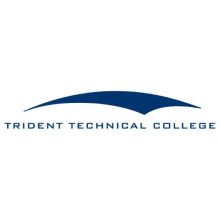Trident Technical College
Selected Programs at Trident Technical College
Explore programs at Trident Technical College. This list is curated by SkillPointe to match skills-based industries and careers that don't require a four-year degree.
Browse Training Programs (96)
Browse Earn + Learn Programs (45)
Architectural Drafter
Auto Mechanic
Chef and Head Cook
Civil Engineering Technician
Electrician
HVAC Technician
Industrial Machinery Mechanic
Machinist
Welder
Architectural Drafter
Auto Mechanic
Chef and Head Cook
Civil Engineering Technician
Electrician
HVAC Technician
Industrial Machinery Mechanic
Machinist
Welder
Architectural Drafter
Auto Mechanic
Chef and Head Cook
Civil Engineering Technician
Electrician
HVAC Technician
Industrial Machinery Mechanic
Machinist
Welder
Architectural Drafter
Auto Mechanic
Chef and Head Cook
Civil Engineering Technician
Electrician
HVAC Technician
Industrial Machinery Mechanic
Machinist
Welder
Architectural Drafter
Auto Mechanic
Chef and Head Cook
Civil Engineering Technician
Electrician
HVAC Technician
Industrial Machinery Mechanic
Machinist
Welder
Address
7000 Rivers Avenue
Charleston, SC 29423-8067
Charleston, SC 29423-8067
Phone number
843-574-6111

